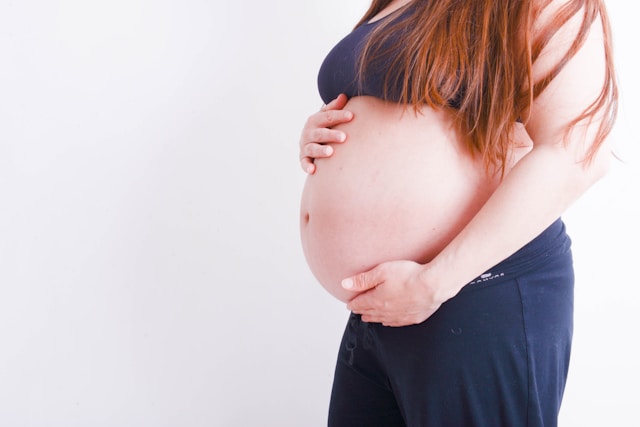Pregnancy is a transformative journey for any woman, but carrying multiple babies can magnify both the physical and emotional changes that accompany this life stage. From the moment of conception to the postpartum period, multiple pregnancies—whether twins, triplets, or more—bring unique challenges and experiences that can significantly impact a woman’s health and well-being. In this blog post, we will explore the various effects of multiple pregnancies on women’s health, focusing on physical, emotional, and psychological aspects.
Physical Health Implications
1. Increased Risk of Complications
One of the most immediate concerns with multiple pregnancies is the increased risk of complications. Women carrying multiples are more likely to experience issues such as gestational diabetes, preeclampsia, and placental abruption. These conditions can pose serious health risks for both the mother and the babies, necessitating closer monitoring and potentially leading to preterm delivery.
2. Physical Discomfort and Limitations
The physical demands of carrying multiple fetuses can lead to increased discomfort. Common complaints include severe nausea (hyperemesis gravidarum), back pain, and increased fatigue. As the pregnancy progresses, women may find it challenging to engage in daily activities, which can impact their overall quality of life.
3. Weight Gain and Body Changes
While weight gain is a normal part of pregnancy, women with multiples may experience more significant weight gain than those carrying a single fetus. This can lead to concerns about long-term weight management and body image after the babies are born. Additionally, the stretching of the abdominal muscles and skin can result in more pronounced stretch marks and changes in body shape.
Emotional and Psychological Impact
4. Stress and Anxiety
The stress of managing a multiple pregnancy can be overwhelming. Anticipating the needs of several children, navigating medical appointments, and preparing for the logistics of bringing multiple babies home can lead to heightened anxiety levels. Expectant mothers need to seek support from partners, family, and friends during this time.
5. Postpartum Depression
Women who have experienced multiple pregnancies are at a higher risk of postpartum depression (PPD). The demands of caring for multiple newborns can be exhausting, and feelings of being overwhelmed can intensify emotional struggles. Mothers must recognize the signs of PPD and seek professional help if needed. Support groups and counseling can be beneficial in managing these feelings.
6. Changes in Relationships
The dynamics of a relationship can shift dramatically after the birth of multiples. Partners may find themselves adjusting to new roles and responsibilities, leading to stress and potential conflicts. Open communication is vital to navigate these changes. Couples may benefit from couples counseling or support groups specifically for parents of multiples.
Long-Term Health Considerations
7. Future Pregnancies
Women who have had multiple pregnancies may face different health considerations in subsequent pregnancies. There is evidence suggesting that women who have carried multiples may have a higher likelihood of complications in future pregnancies, including an increased risk of preterm labor and other issues. Regular consultations with healthcare providers can help manage these risks.
8. Health Monitoring and Lifestyle Changes
Following a multiple pregnancy, women may need to establish new health monitoring practices. This can involve scheduling regular check-ups to assess any long-term effects on their physical health, including monitoring blood pressure and managing weight. Maintaining a balanced diet and participating in regular physical activity is also essential for overall well-being, particularly if the woman is considering future pregnancies.
Moreover, some women may explore options such as vaginal rejuvenation. What is vaginal rejuvenation? It is a procedure aimed at restoring vaginal elasticity and function. This treatment can help address physical changes that may occur after multiple pregnancies, enhancing comfort and confidence in one’s body.
Support and Resources
9. Building a Support Network
For women navigating the challenges of multiple pregnancies, building a support network can be invaluable. This network can include healthcare professionals, friends, family, and online communities. Support groups for mothers of multiples can provide shared experiences, practical tips, and emotional encouragement.
10. Education and Preparation
Education is a powerful tool for managing the complexities of multiple pregnancies. Expectant mothers can benefit from prenatal classes tailored specifically for those carrying multiples, covering topics such as feeding strategies, baby care, and postpartum recovery. Being informed can alleviate some anxiety and equip mothers with the skills needed to handle the demands of multiple children.
In Conclusion
The journey of a multiple pregnancy is a unique and often challenging experience that can profoundly impact a woman’s health. From physical complications to emotional challenges, understanding these effects is essential for navigating the journey with confidence and resilience. With the right support, education, and resources, women can embrace the joys and challenges of motherhood, even when it comes to multiples. By prioritizing their health and well-being, mothers can create a nurturing environment for themselves and their growing families.





Be First to Comment